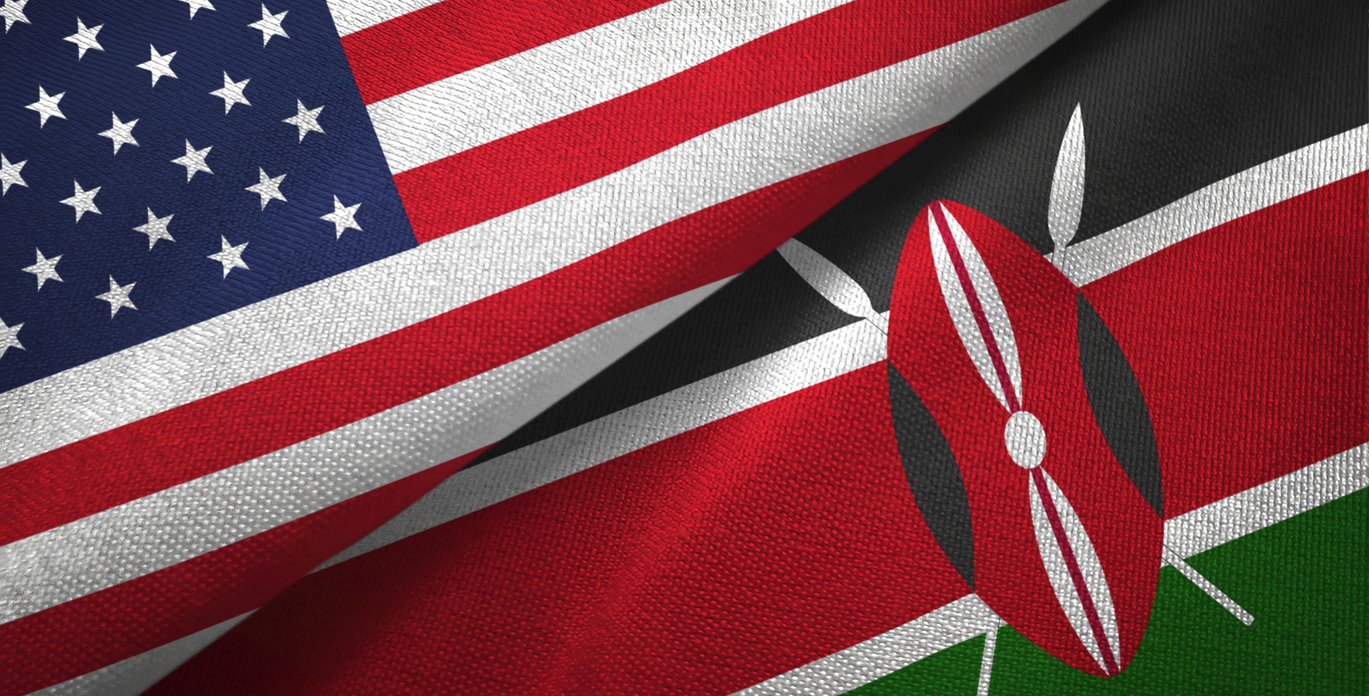
1.0 Introduction
Kenya and the United States are currently experiencing a profound period of policy re-evaluation, with both nations seeking to redefine their positions and priorities within the global order. The shift is being shaped by significant changes in leadership and a realignment of interests across domestic and international spheres. Under President Donald Trump, the United States has embraced an agenda sharply contrasting that of President Joe Biden. Biden, who had enjoyed close ties with Kenya’s President William Ruto, prioritized collaborative policies rooted in democratic ideals, multilateralism, and mutual economic interests (Risch, 2024). Meanwhile, the new administration aims to undo many of these policies as it focuses on reshaping global alliances and countering rising influences from nations like China and Russia.
At the same time, Kenya finds itself at a pivotal moment. Seeking to assert itself as a regional powerhouse and pivotal actor in African affairs, Kenya under Ruto has adopted policies aligning strategically with the United States’ interests, regardless of changes in presidential administrations. This shift is reflected in Kenya’s evolving positions on contested issues such as sovereignty, state recognition, and human rights, underscoring the tension between traditional African Union policies and the demands of a reshaping global order (AU, 2023). Against this backdrop, this commentary highlights five critical issues under RutoTrump’s reign, highlighting moments of both alignment and tension that carry profound implications for Kenya, the United States, and the wider African continent.
2.0 Key Issues
2.1. Personalistic Politics and Institutional Erosion
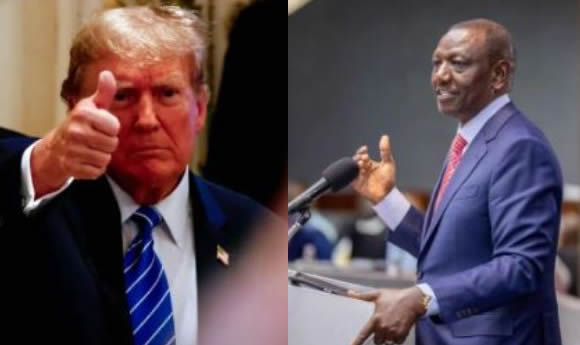
Both President Donald Trump and President William Ruto have demonstrated highly personalistic approaches to politics, often prioritizing loyalty, charismatic legitimacy, and assertion of control over institutional accountability. They share a tendency to claim credit for accomplishments while attributing setbacks to external forces or internal detractors (Amnesty International, 2023). In both Kenya and the United States, this approach has shaped national narratives and policymaking, with leaders relying extensively on trusted associates and appointing loyalists, regardless of qualifications, thereby undermining institutional integrity. Both Trump and Ruto have appointed cabinet members and senior state officers who often lacked requisite experience or qualifications for their roles, at times creating positions that operate beyond the boundaries of established law. These appointments have led to significant policy setbacks when loyalty was prioritized over competence, triggering controversies that hurt long-term national interests (Bratton & Kimenyi, 2023).
2.2 Strategic Realignment in International Relations
Kenya has leveraged its strategic position in Africa to deepen ties with the United States, aligning its interests with American policies regardless of the occupant of the White House. Under President Joe Biden, Kenya secured designation as a ‘Major Non-NATO Ally,’ gaining access to vital security tools and resources — an honor granted in recognition of Kenya’s decision to send police forces to Haiti when better-resourced nations refused (US State Department, 2023). In turn, Kenya gained a privileged status that cemented its role as a key security partner for the United States in the Horn of Africa. With Trump’s victory in November 2024, President Ruto acted quickly to recalibrate Kenya’s policies and secure continuity in Kenya–US relations. In a congratulatory message, Ruto emphasized Kenya’s role in supporting Trump’s global agenda and requested ongoing American backing for Kenya’s security and peacekeeping efforts in Haiti (Risch, 2024).
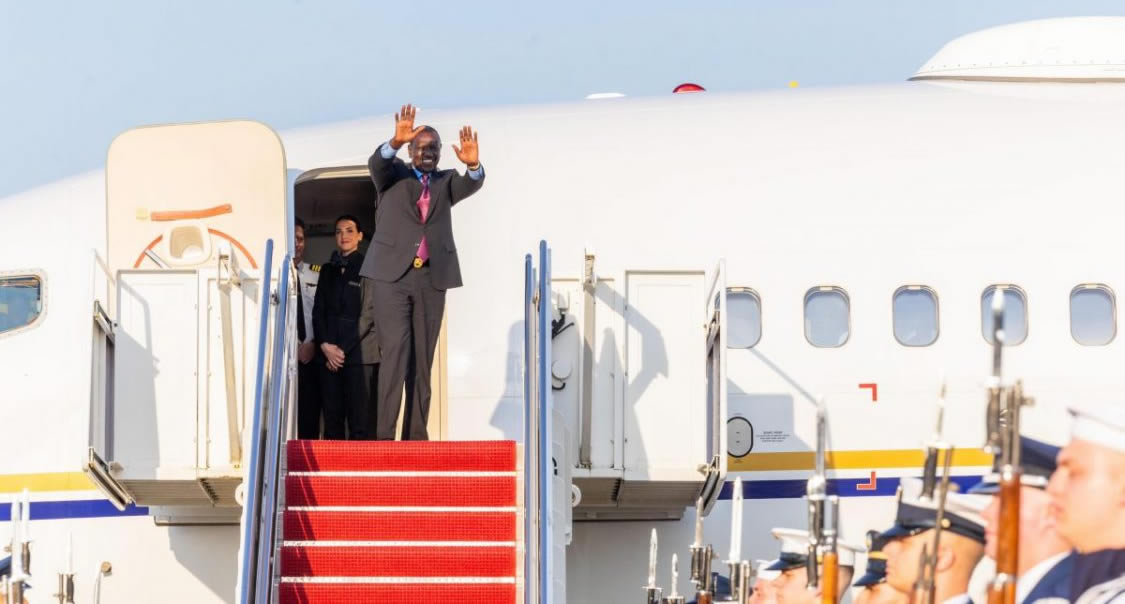
2.3 The Debate on Sovereignty and State Recognition
Kenya and the United States have both grappled with contested questions of sovereignty, aligning themselves with positions that diverge sharply from long-standing African Union policies. Under President Ruto, Kenya has signaled a willingness to recognize breakaway territories such as Somaliland, aligning itself more closely with Trump’s worldview, which embraces contested sovereignties when it serves strategic interests (AU, 2023). This approach mirrors the United States’ long-standing practice of prioritizing bilateral benefits and security interests over traditional international norms. Kenya has also shifted its stance towards contested territories beyond the Horn of Africa. In the case of Western Sahara, Kenya embraced Morocco’s claim despite the African Union’s long-standing position that Western Sahara has the right to self-determination. Upon assuming office, Ruto signaled a reversal of Kenya’s prior position, aligning itself with Morocco and opening an embassy in Rabat. Kenyan Foreign Minister Musalia Mudavadi further advocated for the ‘autonomy solution’ promoted by Morocco (AU, 2022).
2.4 Human Rights and the Rule of Law
Kenya and the United States have both been criticized for their approach to human rights and the rule of law. Kenya’s internal security record has come under scrutiny following incidents such as the abduction of Ugandan politician Kizza Besigye in Nairobi and Kenya’s complicity in Tanzania’s mistreatment of Kenyans supporting opposition candidate Tundu Lissu. At an annual prayer breakfast attended by Americans, President Ruto issued a public apology to both Uganda and Tanzania and sought the forgiveness of Kenya’s youth for the excesses of 2024 (KNHRC, 2024). Yet shortly afterwards, Kenyan police detained Albert Ojwang in Migori County and transported him to Nairobi’s Central Police Station, where he was found dead. Authorities announced that Ojwang had died from self-inflicted injuries, but subsequent investigations revealed that he had been tortured and strangled, prompting widespread condemnation (Risch, 2024). Similarly, President Trump came under criticism for brutal crackdowns on migrants, including the deployment of the National Guard to quell riots in Los Angeles in June 2025.
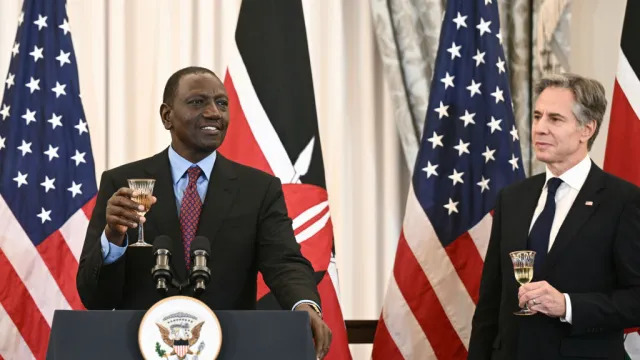
2.5 Impact on Regional Stability and Norm Setting
Kenya and the United States have increasingly embraced contested positions on state recognition and sovereignty, reshaping the dynamics of the Horn of Africa and challenging long-standing African Union norms. Under President Ruto, Kenya signaled its willingness to recognize breakaway states such as Somaliland, aligning itself with Trump’s approach, which prioritizes strategic interests and global influence over traditional international protocols (AU, 2023). This shift also reflects Kenya’s desire for favorable relations with the United States and its regional partners, even if it contradicts African Union policies and exposes Kenya to criticism from neighboring states. Ethiopia’s Abiy Ahmed advocated for the recognition of Somaliland as a means to gain access to the sea and fulfill Emperor Menelik II’s imperial aspirations. Meanwhile, Trump leveraged the issue to counter the influence of Congresswoman Ilhan Omar, aligning the United States with Somaliland as a means to deepen its strategic foothold in the Horn of Africa (Heritage Foundation, 2023).
3.0 Policy Recommendations
3.1 Reinforce Democratic Institutions
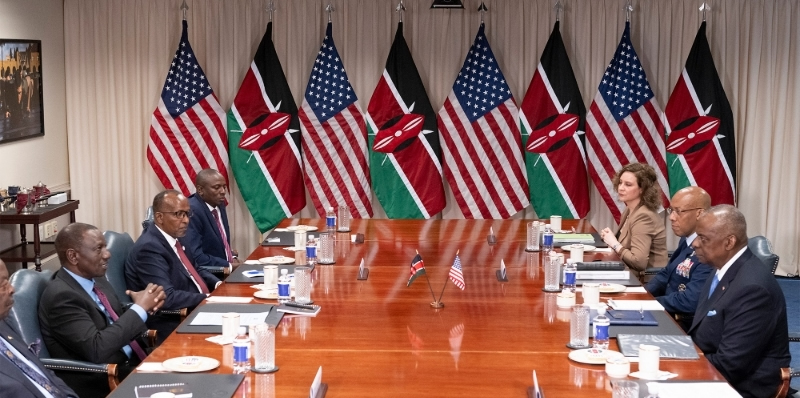
Kenya and the United States must institutionalize policies that reduce the overreliance on personalized politics and foster respect for democratic institutions. This includes strengthening judicial independence, creating robust legislative oversight, and establishing clear standards for the appointment of senior officials (Bratton & Kimenyi, 2023). By prioritizing competence, integrity, and accountability, both nations can ensure that state institutions remain resilient to political turbulence and external influences. Reducing the tendency to bypass court rulings or utilize ad hoc appointments will help build long-term legitimacy and protect democratic norms, making both nations stronger and more trusted global actors (Bratton & Kimenyi, 2023).
3.2 Prioritize Multilateral Engagement
Kenya should balance its deepening bilateral relationships with the United States by reinforcing its commitment to African Union policies and regional institutions. By aligning its international strategies with existing African Union consensus and prioritizing collaborative approaches, Kenya can foster stability, cooperation, and economic integration across borders (AU, 2023). This will reduce tensions with neighbors and protect Kenya’s role as a leading voice within African diplomacy. Focusing on multilateral engagement will enable Kenya to maintain legitimacy, build trust across the region, and position itself as a pivotal partner for peacebuilding and security in the Horn of Africa and beyond (AU, 2023).
3.3 Develop Clear Frameworks for State Recognition
Kenya and the United States should formalize policies for contested sovereignty and state recognition by aligning their positions with international norms and long-standing African Union practices (AU, 2022). Developing a comprehensive, legally grounded approach will reduce tensions and provide clarity when responding to contested sovereignty claims. Such a framework will enable both nations to balance strategic interests with commitments to international stability and respect for borders. By aligning policies with the African Union consensus and reinforcing a rules-based global order, Kenya and the United States can help maintain long-term legitimacy, protect international norms, and foster a more predictable environment for peace and development (AU, 2022).
3.4 Strengthen Human Rights Protections
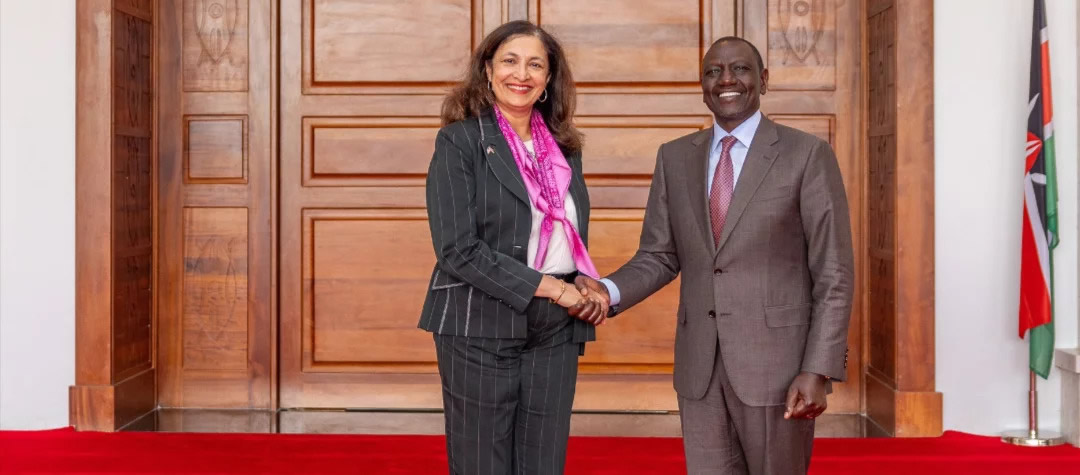
Kenya and the United States must reaffirm their commitments to international human rights standards, ensuring accountability for state-sanctioned violence and aligning security policies with democratic practices (Amnesty International, 2023; KNHRC, 2024). This can be achieved by reinforcing institutional training, strengthening independent monitoring bodies, and creating robust enforcement mechanisms for human rights violations. Kenya must respond openly and decisively to instances of torture and mistreatment, restoring trust between citizens and state institutions (KNHRC, 2024). Meanwhile, the United States must adhere to constitutional guarantees and honor international obligations related to civil liberties and human rights (Amnesty International, 2023). Together, both nations can build a security culture rooted in accountability, trust, and respect for the rule of law.
3.5 Support Regional Stability and Norm Setting
Kenya and the United States should deepen their cooperation with the African Union and other regional institutions to support long-standing norms of state sovereignty and territorial integrity. Both nations have pivotal roles in shaping the future stability of the Horn of Africa and beyond (AU, 2023). By aligning policies with established African Union standards and promoting dialogue over contested borders, Kenya and the United States can help preserve regional peace and deter external aggression. Together, both nations can foster a rules-based environment that encourages economic integration, advances shared security interests, and strengthens institutional resilience across the African continent (AU, 2023).
4.0 Conclusion
Kenya and the United States currently stand at a pivotal juncture defined by moments of alignment and tension. The interplay between Trump’s global reorganization agenda and Ruto’s ambitions to position Kenya as a central actor in African and international affairs has shaped a complex and contested terrain. Without policies rooted in institutional integrity, democratic accountability, and respect for international norms, Kenya and the United States risk undermining both their internal stability and the cohesion of African institutions. Together, these dynamics have profound implications for Kenya, the United States, and the broader African and international communities.
5.0 References
African Union. (2022). AU position on Western Sahara and contested sovereignty. African Union Commission. Retrieved from https://au.int/
African Union. (2023). Kenya–Somalia Relations and Sovereignty Statement. African Union Peace and Security Council. Retrieved from https://au.int/
Amnesty International. (2023). Trump era policies and global human rights abuses. Amnesty International. Retrieved from https://www.amnesty.org/
Bratton, M., & Kimenyi, M. (2023). Leaders and institutions in African politics. African Studies Quarterly, 25(2), 67–93. https://www.africanstudies.org/
Heritage Foundation. (2023). Project 2025: Strategic Framework for US Engagement in the Horn of Africa. Heritage Foundation. Retrieved from https://www.heritage.org/
Kenya National Human Rights Commission (KNHRC). (2024). Annual Human Rights Report. Nairobi: KNHRC Press.
Risch, J. (2024). One step forward, two steps back: A review of US–Europe cooperation on China. United States Senate Committee on Foreign Relations. Retrieved from https://www.foreign.senate.gov/
US State Department. (2023). Kenya’s designation as a Non NATO ally. United States Department of State. Retrieved from https://www.state.gov/
